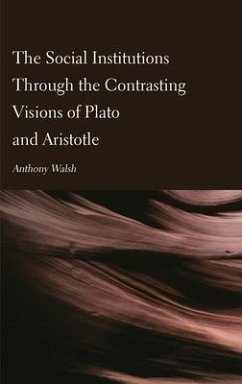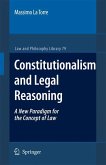Many of the fundamental questions philosophers and social scientists ask, necessarily entail examining the role of the social institutions. Social institutions are synchronized systems of self-enforcing regulative rules, behaviors, and practices designed for the perpetuation of important societal functions and which give durable structure to social interactions. Everything in human life entails aspects of one or more of these institutions. There are people in academia that want to sweep "dead white males" under the historical carpet, but two dead white men we cannot ignore when examining the social institutions are Plato and Aristotle. These men have been at the heart of Western culture for more than two millennia and still continue to shape it. There are few social or political issues today that were not thought about by these two great men. They had a lot to say about the social institutions, but they had contrasting visions on most things pertaining to them that may be broadly viewed as liberal and conservative, or what economist/philosopher Thomas Sowell calls unconstrained and constrained visionaries, respectively. The book is a scholarly work on these two foundational philosophers, but will also serve as a supplementary text for a sociology class (introduction to sociology, or one specifically devoted to the social institutions).








